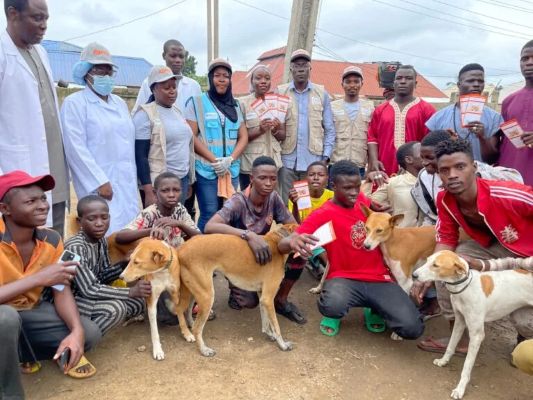The Livestock Management Services (LMS) has stressed that at least 70 per cent of Nigeria’s dog population must be vaccinated to break the chain of rabies transmission, warning that persistent gaps in coverage continue to fuel outbreaks.
Dr. Bala Muhammed, Director and Chief Executive Officer of LMS, said this in Abuja on Sunday while marking World Rabies Day, commemorated annually on September 28. The 2025 theme is “Act Now: You, Me, Community.”
Muhammed explained that over 99 per cent of human rabies infections in Nigeria come from hunting and free-roaming community dogs that come into contact with wildlife and spread the disease to people and livestock.
He called for targeted vaccination of hunting and community dogs, backed by resource mobilisation from government, NGOs, donors, and community leaders to fund free mass vaccination, mobile clinics, training of local vaccinators, and dog population mapping.
Globally, rabies causes an estimated 59,000 human deaths annually, with Africa accounting for about 21,000. In Nigeria, between 1,000 and 2,000 deaths are recorded every year, with children under 15 disproportionately affected.
Muhammed also urged stronger school and neighbourhood education, enforcement of dog registration, and wider access to Post Exposure Prophylaxis (PEP) to save lives. He noted that while PEP can be costly and logistically difficult to access, dog vaccination remains the most effective way to prevent human suffering and reduce the need for expensive treatments.
“This commemoration calls on dog owners to vaccinate and contain their animals; on health and veterinary services to coordinate Integrated Bite Case Management and PEP access; and on policymakers to fund mass vaccination, surveillance, and community education,” Muhammed said.
He added that rabies prevention requires collective responsibility, responsible pet ownership, and urgent action to protect families, livestock, and communities across Nigeria.


